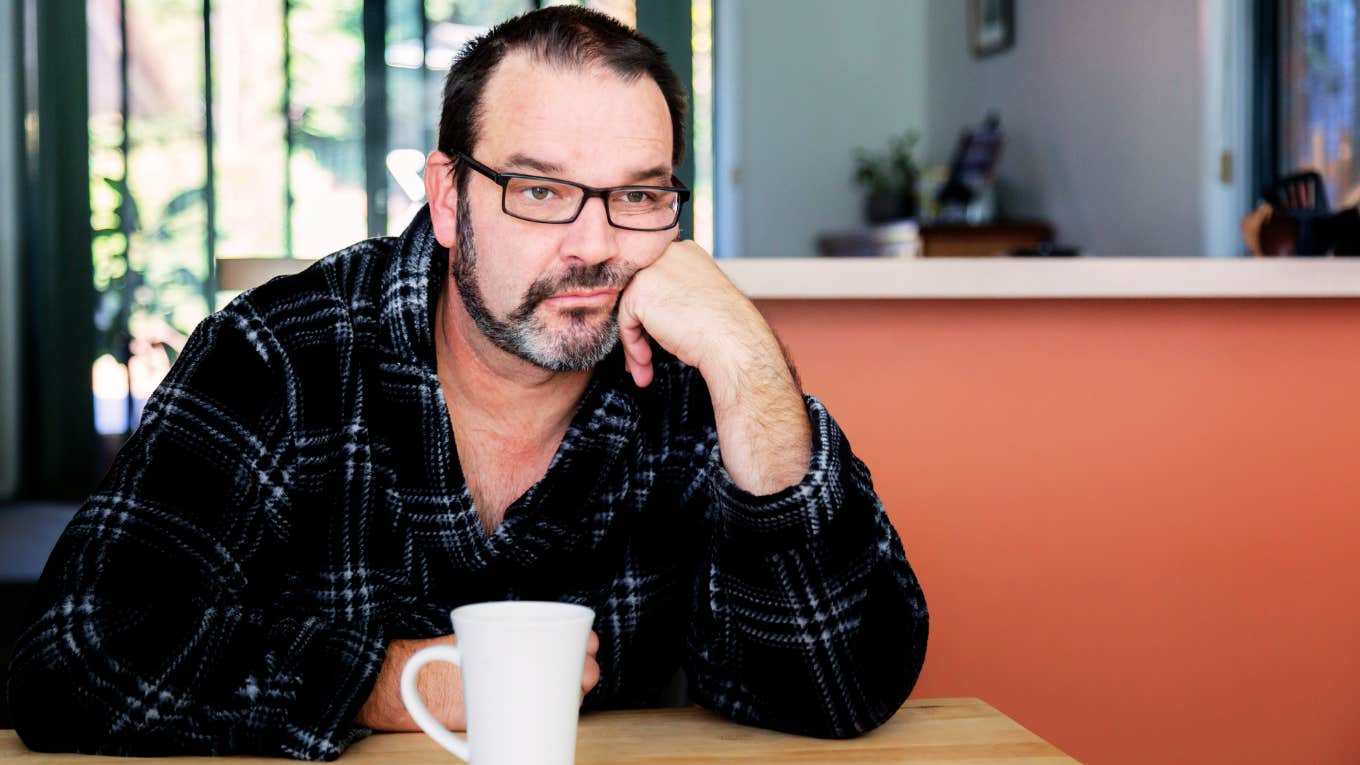How I Wasted The First 50 Years Of My Life
Ironically, it was the same point when I had achieved all the things I was taught that would make me happy.
 UlrikaArt | Shutterstock
UlrikaArt | Shutterstock As I lay in bed next to my wife on Sunday night September 7, 2014, this thought pounded at my head like a kick drum, getting louder and louder.
It wasn’t like it crept up and blindsided me though. The past year left plenty of red flags as I wandered around in a state of lethargy. Everything I had done seemed hollow and meaningless and I had run out of mulligans. I was beginning to understand why so many men my age decided to just say, “screw it” and blow their brains out.
I'd officially hit my midlife crisis.
Ironically, it was the same point when I had achieved all the things I was taught that would make me happy. I was at my fighting weight of 200 pounds, I had a beautiful home life, and my business was thriving.
I bounced back and forth between anger and fear like a wimpy kid being tossed by two bullies. Anger at a world that failed to live up to our implied contract that if I did XYZ, I’d live happily ever after; fear from thinking my best days were behind me and the reaper was just around the corner.
It wasn’t like I’d never heard of a midlife crisis. I’d seen it before in many men. I knew it was a normal segue to old age, and I still hadn’t lived. While a midlife crisis may be a normal part of every man's growth, the pain he feels and the way he deals with that pain is very personal
I wasn’t a stranger to this level of pain. After spending over 25 years as an addict, this felt very familiar to me. During my journey of recovery, I came to understand addiction very intimately and it occurred to me that this, too, was addiction rearing its ugly head in my life once again.
The midlife crisis is created by addiction. Without addiction, it cannot exist.
This time it was wearing a different mask. It didn’t show up as a bottle, needle, or a bet. It was one that first introduced itself to me long before those things. One I share with all human beings, not just the ones stigmatized by society.
Dr. Joe Dispenza, a neuroscientist, and author of several books, including Breaking The Habit Of Being Yourself and You Are The Placebo, gives convincing evidence of the three addictions we all develop early in life long before we’re introduced to any harmful substances.
They are as follows:
- Addiction to our bodies
- Addiction to our environment
- Addiction to the concept of time
These are the three faces of addiction that cause many of us to hit that proverbial rock bottom at midlife.
As our bodies begin to let us down and our environment no longer views us as the stallions we once were, we become confused and afraid. Then our addiction to time kicks in as we see ourselves moving closer to our funerals than our birth dates.
 Voronaman via Shutterstock
Voronaman via Shutterstock
As a recovery life coach who spends a great deal of time around addiction and mature men, I can say with certainty one of the most devastating and deadly side effects of addiction can be the midlife crisis.
Coming face to face with your mortality can be scary as hell.
Many men will add a few more additions to their diets as a way to self-medicate. Others may grow a ponytail, buy a Corvette, and start banging women their daughter’s age; all of which only provide temporary relief from a deep pain that comes from not knowing who you are anymore.
When we attach our identities to temporary things, our identities, too, are temporary — and we find ourselves in a constant chase to reinvent ourselves.
That chase is no different than the alcoholic pursuing that long-lost high, oblivious to the fact that it’s gone forever. Sadly, many men continue this hopeless chase throughout their lives and go to their graves, never harvesting the fruits from their years of labor.
Like all addictions, the road to recovery begins with awareness and surrender. Those who become willing can begin their journey inward and find that permanent joy and serenity that all the success, riches, and intimacy in the outer world didn’t provide.
When we finally begin our inner work, the outer physical world becomes more beautiful too, because we see it for what it is, a mirror reflecting our true self. The illusions disappear and the opportunity to finally live the life you were meant to live, presents itself.
In Robert A. Johnson’s book, Living Your Unlived Life, he goes into great detail about this very topic. I strongly recommend it to anyone dealing with a midlife crisis.
Entering your inner world comes with challenges you didn’t have when you were first introduced to the physical world. There’s excess baggage that you’ll need to dispose of first. Judgments and beliefs will impede your ability to think with the child’s mind you need to open yourself up to all the new wonders.
At 58 years old, I see clearly how everything in my life has been preparing me for this time of awakening. The time when I get to see reality rather than relativity. The time when judgments and perceptions get replaced by real knowledge.
My Destiny.
Greg Boudle is a recovery life coach, published author, and professional speaker.

